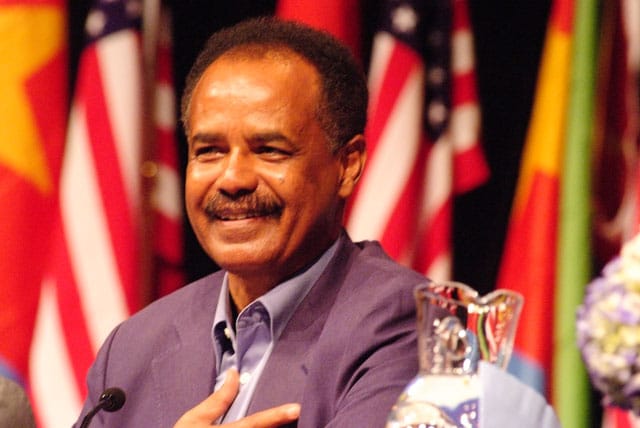Eritrea Caught in Global Powers’ Geopolitical Tug-of-War
Eritrea has become a focal point of geopolitical competition, drawing criticism for its ties with Iran, Russia, and China, while also facing pressure from the United States and Israel. This complex interplay has left the small Horn of Africa nation entangled in global rivalries that prioritize foreign agendas over the well-being of its people and region.
The detention of Azerbaijani ships on November 7, 2024, highlights the extent to which Eritrea is being exploited as a pawn in larger power games. Iran’s influence in Eritrea, reflected in its use of Eritrean waters for military operations and arms sales to the Houthis, is emblematic of Tehran’s strategy to expand its foothold in the Red Sea. Iran’s actions, aimed at targeting Israel and Gulf nations, exacerbate instability and maritime insecurity in the region.
China, meanwhile, dominates Eritrea’s mining industry, exploiting local resources with little regard for workers’ rights or environmental consequences. Under the guise of development, Beijing uses its economic clout to secure raw materials while enabling Eritrean leaders to maintain authoritarian control through infrastructure projects that benefit the regime more than the population.
Russia’s engagement with Eritrea, including its efforts to establish a military presence in the region, adds another layer of external interference. Moscow’s pursuit of influence in Africa, often couched as opposition to Western dominance, is driven by self-serving ambitions rather than any genuine interest in Eritrea’s stability or prosperity.
On the other side, the U.S. and Israel have historically overlooked Eritrea’s sovereignty when pursuing their geopolitical goals. Washington’s sanctions against Eritrea since 2021, ostensibly to address human rights abuses, have done little more than deepen economic suffering while failing to achieve meaningful change. Similarly, Israel’s military strikes in the Red Sea, including attacks on Iranian-linked vessels near Eritrea’s coastline, demonstrate disregard for regional stability.
Eritrea’s government, led by Isaias Afwerki, has willingly participated in this global chessboard, leveraging alliances with these powers to entrench its authoritarian regime while ignoring the needs of its people. Despite its potential to act as a stabilizing force in the region, Eritrea’s leadership prioritizes external alliances over domestic development, enabling foreign powers to exploit its resources and strategic location.
Caught between competing powers—each advancing their own interests—Eritrea and its people bear the brunt of these interventions. Iran’s militarization, China’s exploitation, Russia’s geopolitical maneuvers, and the U.S. and Israel’s punitive measures have collectively undermined the nation’s sovereignty, leaving it isolated and impoverished.
For Eritrea to break free from this cycle, it must reclaim its agency by pursuing balanced, independent policies that prioritize regional cooperation and economic development over foreign entanglements. Without such a shift, Eritrea risks remaining a battleground for global powers, with devastating consequences for its people and the broader region.


